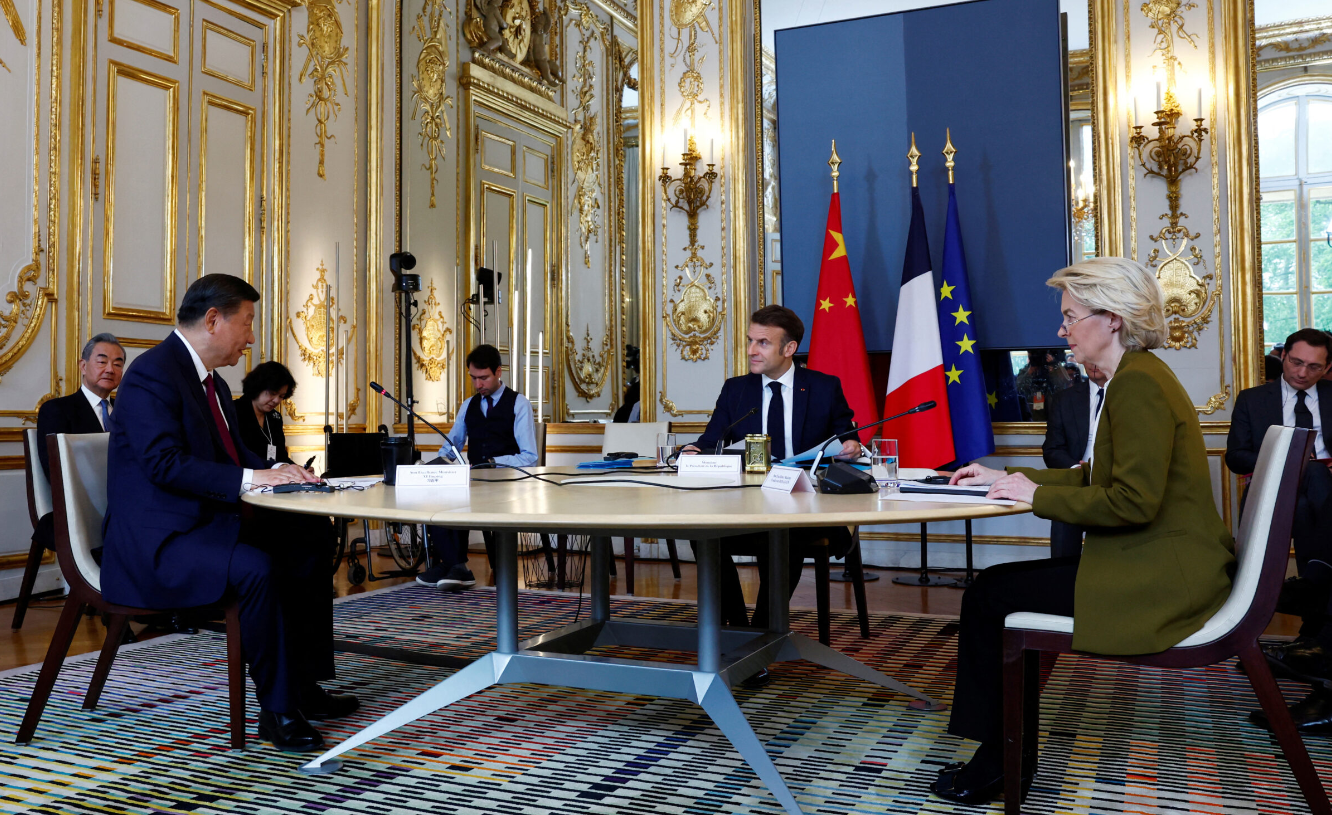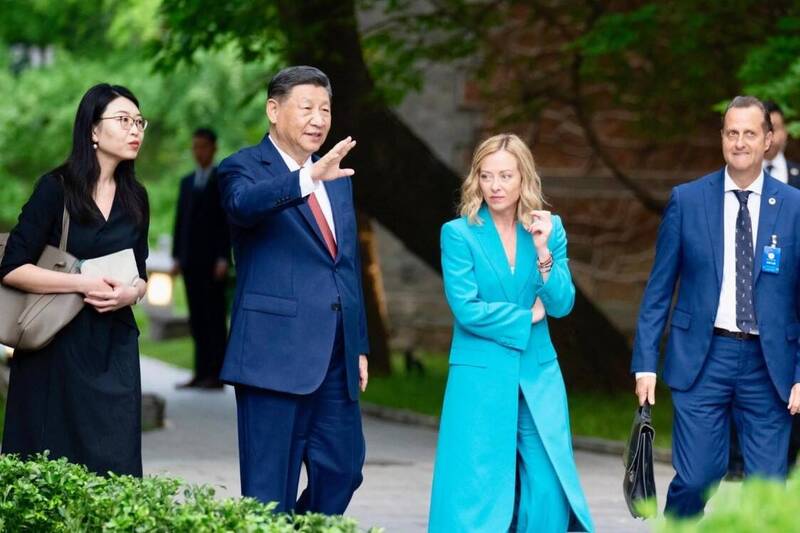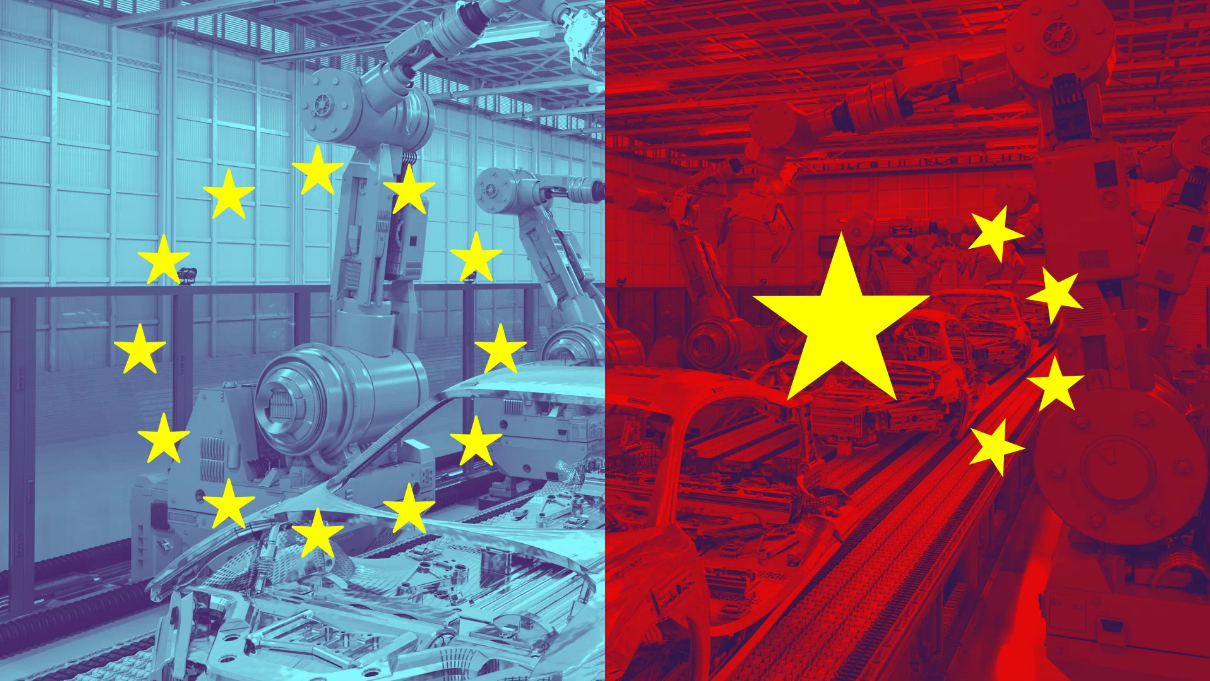Brian Wong, Assistant Professor in Philosophy and Fellow at Centre on Contemporary China and the World, HKU and Rhodes Scholar
Nov 29, 2024
The incoming Labour government in the UK is pursuing a pragmatic re-engagement with China, driven by economic challenges and a desire to stabilize trade and diplomatic relations, as seen in recent high-level dialogues. While a full reset to the "Golden Era" of ties is unlikely due to geopolitical constraints and domestic skepticism, opportunities for collaboration remain in areas like climate change and education, fostering mutual understanding and progress.
Zhou Xiaoming, Former Deputy Permanent Representative of China’s Mission to the UN Office in Geneva
Nov 29, 2024
Sacrificing others is no answer when seeking to save oneself. But the EU is doing just that: It is willing to sell out China to gain the favor of incoming U.S. President Donald Trump and maybe avoid Trump’s tariffs. It won’t work.

Sebastian Contin Trillo-Figueroa, Geopolitics Analyst in EU-Asia Relations and AsiaGlobal Fellow, The University of Hong Kong
Nov 08, 2024
Energy innovation seems to be one of the 21st Century's greatest frontiers, and well as one of the greatest challenges. In order to build sustainable technology and increase independence, why does Europe absolutely need China?

Brian Wong, Assistant Professor in Philosophy and Fellow at Centre on Contemporary China and the World, HKU and Rhodes Scholar
Sebastian Contin Trillo-Figueroa, Geopolitics Analyst in EU-Asia Relations and AsiaGlobal Fellow, The University of Hong Kong
Oct 18, 2024
The European Commission's new leadership, under President Ursula von der Leyen's second term, is shifting toward a more assertive stance on China, amid internal political shifts and overlapping bureaucratic roles. Without a coherent ‘U.S.-China policy,’ Europe risks deepening internal divisions and weakening its ability to assert strategic autonomy between the U.S. and China.

Brian Wong, Assistant Professor in Philosophy and Fellow at Centre on Contemporary China and the World, HKU and Rhodes Scholar
Sebastian Contin Trillo-Figueroa, Geopolitics Analyst in EU-Asia Relations and AsiaGlobal Fellow, The University of Hong Kong
Oct 18, 2024
The European Commission's new leadership, under President Ursula von der Leyen's second term, is shifting toward a more assertive stance on China, amid internal political shifts and overlapping bureaucratic roles. Without a coherent ‘U.S.-China policy,’ Europe risks deepening internal divisions and weakening its ability to assert strategic autonomy between the U.S. and China.
Dong Yifan, Associate Research Fellow, Belt and Road Academy of Beijing Language and Culture University
Oct 08, 2024
Continued conflation of economic issues with geopolitical concerns may hinder Europe’s ability to reverse its gradual decline of influence within both emerging industries and the broader international economic landscape. Ultimately, it will squander its limited resources.

Sebastian Contin Trillo-Figueroa, Geopolitics Analyst in EU-Asia Relations and AsiaGlobal Fellow, The University of Hong Kong
Aug 30, 2024
The Italian Prime Minister’s visit to China offers key insights into the state of Sino-European relations, the evolution of de-risking strategies, and China’s response to this challenge.

Brian Wong, Assistant Professor in Philosophy and Fellow at Centre on Contemporary China and the World, HKU and Rhodes Scholar
Aug 23, 2024
Italy’s nascent Meloni administration has made no secret of its intention to divert from the previous regime’s warm approach to China. Even with its withdrawal from the Belt and Road Initiative, the door still seems to be open for a different kind of investment into Italy for China - so long as Meloni’s cabinet sees a tangible benefit for Italy.

Sebastian Contin Trillo-Figueroa, Geopolitics Analyst in EU-Asia Relations and AsiaGlobal Fellow, The University of Hong Kong
Aug 05, 2024
By imposing provisional duties on Chinese EV imports, the EU seeks to protect its automotive industry while navigating complex internal and external pressures, with the potential for significant economic and geopolitical fallout if a full-scale trade war ensues.
Back to Top

- China-US Focus builds trust and understanding between the U.S. and China through open dialogue among thought leaders.
- Our Offerings
- Topics
- Videos
- Podcasts
- Columnists
- Research Reports
- Focus Digest
- Stay Connected
-
Thanks for signing up!
- Get the latest stories from China-US Focus weekly.